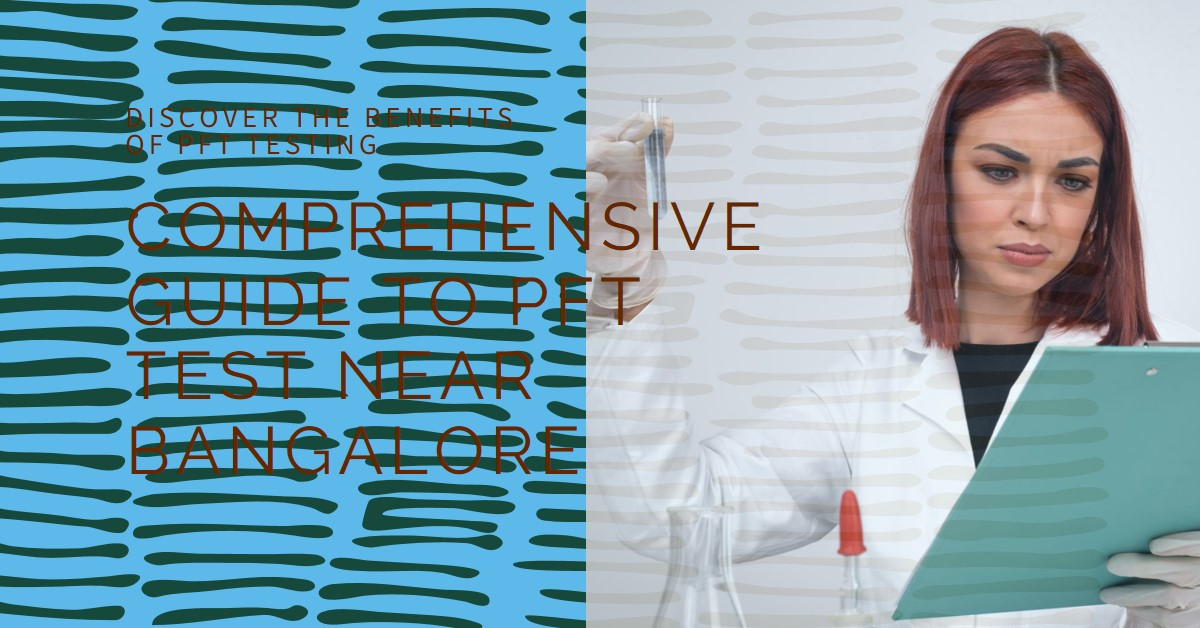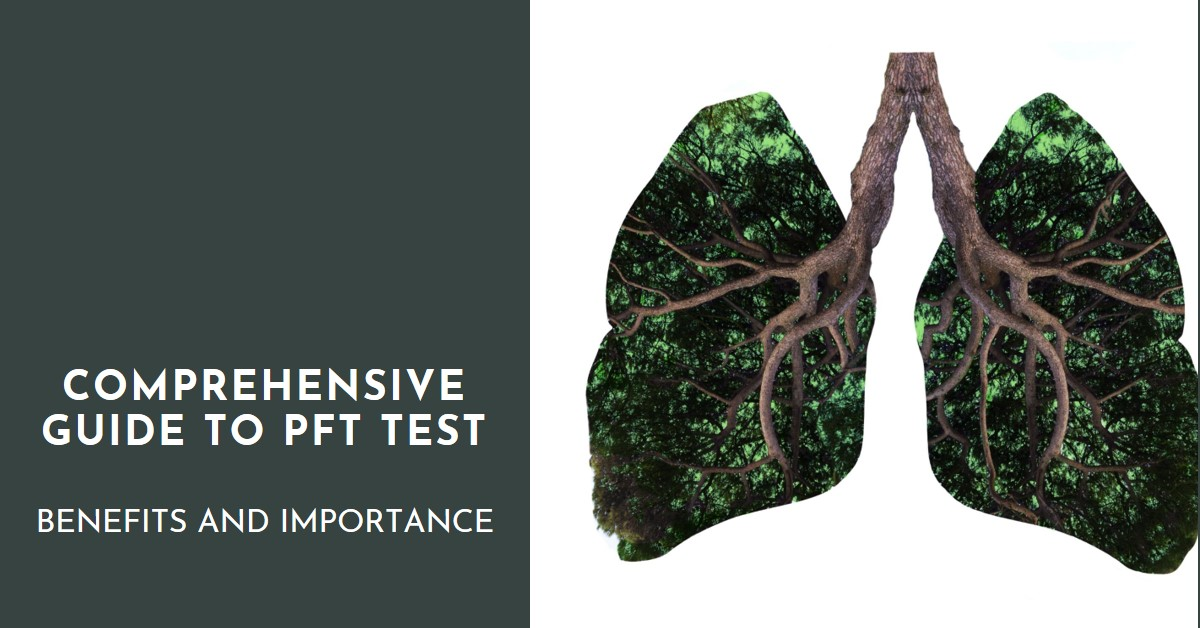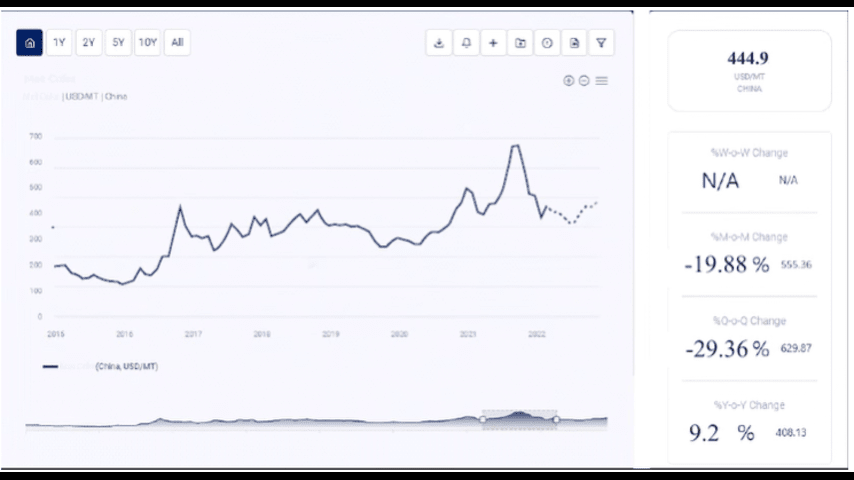Pulmonary Function Tests (PFT) are essential diagnostic tools used to evaluate the function of the lungs. These tests are crucial for diagnosing various respiratory conditions and assessing lung health. If you’re in or near Bangalore and considering a PFT test, this article will guide you through what to expect, why it’s important, and where to find reliable testing services.
What is a PFT Test?
A Pulmonary Function Test measures how well your lungs are working. It evaluates lung volume, capacity, rates of flow, and gas exchange. PFTs help diagnose conditions such as asthma, chronic obstructive pulmonary disease (COPD), and other respiratory disorders.
Types of PFT Tests
Spirometry: This is the most common type of PFT, measuring how much air you can inhale and exhale, and how quickly you can exhale.
Lung Volume Measurement: This test measures the total volume of air your lungs can hold.
Diffusion Capacity Test: This test measures how well oxygen and carbon dioxide are exchanged between your lungs and bloodstream.
Methacholine Challenge: Used to diagnose asthma, this test involves inhaling a substance that can provoke asthma symptoms.
Why are PFT Tests Important?
PFT tests are essential for several reasons:
Early Detection: They help in the early detection of lung diseases, allowing for timely treatment and management.
Monitoring Progress: For those already diagnosed with a lung condition, PFTs can track the progress and effectiveness of treatments.
Surgical Assessment: PFTs are often required before surgeries to evaluate a patient’s ability to tolerate anesthesia and surgery.
Research and Development: They play a crucial role in research settings, helping to understand the impact of new treatments on lung function.
Preparing for a PFT Test
Preparation for a PFT test is essential to ensure accurate results. Here are some tips:
Avoid Heavy Meals: Do not eat a heavy meal at least two hours before the test.
Medication: Discuss with your healthcare provider about your medications. Some may need to be withheld before testing.
Avoid Smoking: Do not smoke for at least 24 hours prior to the test, as smoking can affect lung function.
Wear Comfortable Clothing: Loose-fitting clothes will help you breathe better during the test.
Stay Hydrated: Drink plenty of water before the test, but avoid caffeine and alcohol.
Where to Find PFT Tests Near Bangalore
If you’re looking for a PFT test near Bangalore, several reputable facilities offer these services. Here are a few options:
Ecotown Diagnostics: Known for its NABL accreditation, Ecotown Diagnostics provides comprehensive PFT services with modern equipment and skilled professionals. They offer personalized care and thorough follow-ups.
Sankara Nethralaya: Though primarily an eye hospital, Sankara Nethralaya also has a dedicated department for respiratory medicine and offers PFT services.
Manipal Hospital: With branches throughout Bangalore, Manipal Hospital has state-of-the-art facilities for lung function tests.
Bangalore Institute of Respiratory Medicine: Specializing in respiratory care, this institute provides a range of pulmonary tests, including PFTs.
Apollo Hospitals: With advanced diagnostic facilities, Apollo Hospitals in Bangalore offer comprehensive PFT testing and consultations.
What to Expect During a PFT Test
When you arrive for your PFT test, the following steps typically occur:
Check-in and Medical History: You will fill out forms detailing your medical history and symptoms.
Equipment Setup: You will be shown the equipment used during the test, typically a spirometer.
Testing Process:
For spirometry, you’ll be asked to take a deep breath and exhale forcefully into the device.
Lung volume tests may require you to sit in a sealed chamber or wear a mouthpiece connected to a measuring device.
Diffusion capacity tests involve inhaling a gas mixture to measure how well gases exchange in your lungs.
Post-Test: Once the test is completed, your healthcare provider will discuss the results with you. They may recommend further testing or treatment based on your lung function.
Interpreting the Results
The results of your PFT will include several key measurements, typically compared to predicted values based on age, sex, height, and ethnicity:
FEV1 (Forced Expiratory Volume in 1 second): Indicates how much air you can forcibly exhale in one second. Low FEV1 values may suggest obstructive lung disease.
FVC (Forced Vital Capacity): The total amount of air you can exhale after taking a deep breath. Low FVC values may indicate restrictive lung disease.
FEV1/FVC Ratio: This ratio helps distinguish between obstructive and restrictive lung disease. A lower ratio indicates obstruction, while a normal ratio with low FVC indicates restriction.
Diffusion Capacity: This value indicates how well oxygen passes from your lungs into your blood. A low diffusion capacity can signal issues with the lung tissue.
Potential Risks and Considerations
PFT tests are generally safe and non-invasive. However, some individuals may experience mild discomfort, especially during spirometry. If you have severe respiratory conditions, discuss potential risks with your doctor beforehand.
Common Concerns Post-Test
Shortness of Breath: Some individuals may feel lightheaded or short of breath immediately after the test, but this typically resolves quickly.
Coughing: Mild coughing may occur after the test, especially if inhaled substances are used.
Fainting: Rarely, some patients may feel faint during the procedure, particularly those with existing lung conditions.
FAQs
1. How long does a PFT test take?
A PFT test typically takes about 30 to 60 minutes, including preparation and post-test consultations.
2. Will insurance cover the cost of a PFT test?
Most insurance plans cover PFT tests, but it’s best to check with your provider.
3. Can I eat before a PFT test?
It is advised to avoid heavy meals for at least two hours before the test for accurate results.
4. How often should I get a PFT test?
The frequency of PFT tests depends on your health status and any underlying conditions. Your doctor will advise you on the appropriate schedule.
5. What should I do if I feel anxious about the test?
Discuss any concerns with your healthcare provider beforehand. They can provide information and reassurance to help ease your anxiety.
Conclusion
Understanding PFT tests is crucial for anyone concerned about their lung health. These tests are vital for early detection, monitoring treatment effectiveness, and evaluating overall lung function. If you’re in Bangalore, several reputable facilities, such as Ecotown Diagnostics, offer comprehensive PFT services. By being well-prepared and informed, you can take proactive steps towards better respiratory health.
Also know Echo Test at Home in Bangalore.







